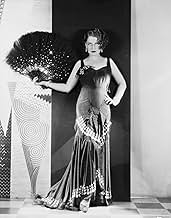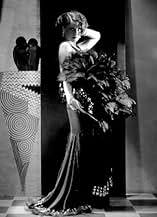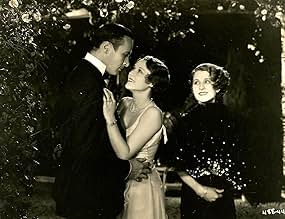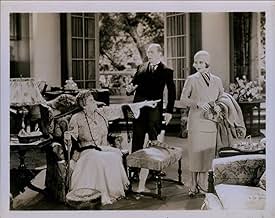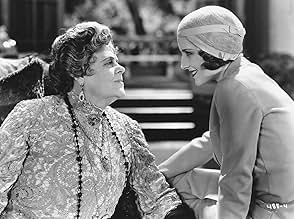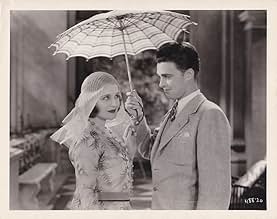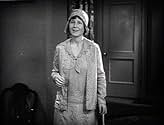A housewife divorces her self-centered husband. Years later, she attends a party where her ex is pursuing another woman. Unbeknownst to him, she is the same ex-wife he'd neglected, now trans... Read allA housewife divorces her self-centered husband. Years later, she attends a party where her ex is pursuing another woman. Unbeknownst to him, she is the same ex-wife he'd neglected, now transformed into a fashionable socialite.A housewife divorces her self-centered husband. Years later, she attends a party where her ex is pursuing another woman. Unbeknownst to him, she is the same ex-wife he'd neglected, now transformed into a fashionable socialite.
- Director
- Writers
- Stars
- Awards
- 1 win total
Rod La Rocque
- Bob Brown
- (as Rod LaRocque)
Tyrell Davis
- Wallace
- (as Tyrrell Davis)
William H. O'Brien
- Struthers
- (as William O'Brien)
Freddie Burke Frederick
- Bobby Brown - 8 Years Old
- (uncredited)
Mary Gordon
- Mrs. McIntyre
- (uncredited)
Marilyn Harris
- The Brown's Little Girl
- (uncredited)
Helene Millard
- Helen Hibbard
- (uncredited)
Dickie Moore
- Bobby Brown - 5 Years Old
- (uncredited)
- Director
- Writers
- All cast & crew
- Production, box office & more at IMDbPro
Featured reviews
Norma Shearer dazzles as she is transformed from a frump, addle-brained house-wife to an alluring potential divorcee. Most 1930 films have a creaky edge to them -- the camera work is pretty sluggish at times -- but we must forgive these all-talking pleasures for their thump-a-long "qualities". As a guest of the eccentric globe-trotting Marie Dressler -- Shearer mixes with an odd assortment of lovelorn types, including her long-lost husband. The dialogue is fun, oft-times clever and the performances on cue. Shearer and Dressler shine the most. Shearer even shows off her piano expertise in a musical brevity. Her strange, yet appealing posturing and "affair with the camera" are evident throughout -- and she hits every emotional note, genuinely and on target. For its time . . .a good show.
I happened to channel surf to Turner Classic Movies just as this one was beginning last night, and once I got past the unlikely opening sequence I couldn't possibly turn away from the unlikely rest of it. It's a romantic comedy with Norma Shearer and a supporting cast that includes a lovely Hedda Hopper and a formidable Marie Dressler. As these things go -- silly rich people playing out a ridiculous "who'll pair up with whom?" plot in a Long Island mansion -- it's amusing and pretty good fun. I guess it's not a movie to recommend per se, but I have to admit I was in the mood to enjoy it last night, especially Marie Dressler's overacting. So if you stumble across it as I did, sure, go ahead, stick around. You won't believe your eyes.
Frumpy housewife Katherine Brown (Norma Shearer) adores her husband Bob (Rod La Rocque). Her every action is dedicated to his comfort. Unfortunately, his roving eyes find other women and in heartbreak, Katherine divorces him. Years later, the two meet again, this time under very different circumstances. Katherine has become a beautiful and charming woman of the world. She is invited to a small party by an eccentric friend (Marie Dressler) to lure Bob away from his latest conquest, the engaged young Diane (Sally Eilers). En route to seducing Bob, Katherine also catches the eyes of all of the men at the party.
Also appearing are Hedda Hopper as the beautiful Madge Livingston and Dickie Moore as Katherine's young son.
This film suffers a bit from early talkie syndrome. The editing is not as slick as it could be, with moments of complete silence and shots with no people in the frame. Sometimes the scenes are confined to one room with very little editing between people. The story is also quite old fashioned, especially the abrupt ending which does not comply with the rest of the film. However, it is worth watching especially for Shearer fans. It is fascinating to see such a startling transformation from an overweight housewife to a gorgeous and elegant woman.
Also appearing are Hedda Hopper as the beautiful Madge Livingston and Dickie Moore as Katherine's young son.
This film suffers a bit from early talkie syndrome. The editing is not as slick as it could be, with moments of complete silence and shots with no people in the frame. Sometimes the scenes are confined to one room with very little editing between people. The story is also quite old fashioned, especially the abrupt ending which does not comply with the rest of the film. However, it is worth watching especially for Shearer fans. It is fascinating to see such a startling transformation from an overweight housewife to a gorgeous and elegant woman.
Dutiful wife Norma Shearer (as Katherine "Kitty" Brown) waits on husband Rod La Rocque (as Bob Brown) hand and foot. While making him breakfast in bed, and helping him dress for a Sunday golf outing, Ms. Shearer suggests joining Mr. La Rocque for the day, noting how infrequently the two see each other. But La Rocque puts her off, saying her presence adversely affects his game. Then, unexpectedly, Shearer meets the real reason for her husband's frequent absences
his pretty blonde mistress!
Three years later, Shearer is a glamorous and flirty divorcée. While summering in Paris, she has struck up a friendship with wealthy, older socialite Marie Dressler (as Mrs. "Boucci" Bouccicault). Ms. Dressler invites Shearer to her Long Island home, to socialize with some friends, and ask a favor. Dressler is worried about her granddaughter's relationship with a suave, worldly man. She wants young Sally Eilers (as Dionne) to marry Raymond Hackett (as Bruce), instead. Aware of Shearer's flirtatious conquests, Dressler asks her to lure the undesirable man away from Ms. Eilers. Shearer is stunned to discover the man is La Rocque, her ex-husband.
Shearer and Dressler make this a cute, entertaining play. They are in top form, giving guaranteed-to-be-popular performances, with enthusiasm and professionalism. The story is silly and predictable; yet, in a way which helps the humorous situation. And, the ending is quite clever. In fact, the comic "Let Us be Gay" may have aged better than Shearer's larger-produced, and more serious, "The Divorcée", which was released around the same time. The cast uniformly fine. La Rocque is better than his film with Lillian Gish; but, his role is not at all endearing. Gilbert Emery (as Towney) and Tyrell Davis (as Wallace) are funny supporting suitors.
Those not familiar with Norma Shearer may not realize it is she who appears as the dowdy wife in the opening scenes. This is Shearer as "Kitty" before her make-over. Watch the close-ups of Shearer with light, natural make-up, for a good look at an intriguingly beautiful woman.
******* Let Us Be Gay (1930) Robert Z. Leonard ~ Norma Shearer, Marie Dressler, Rod La Rocque
Three years later, Shearer is a glamorous and flirty divorcée. While summering in Paris, she has struck up a friendship with wealthy, older socialite Marie Dressler (as Mrs. "Boucci" Bouccicault). Ms. Dressler invites Shearer to her Long Island home, to socialize with some friends, and ask a favor. Dressler is worried about her granddaughter's relationship with a suave, worldly man. She wants young Sally Eilers (as Dionne) to marry Raymond Hackett (as Bruce), instead. Aware of Shearer's flirtatious conquests, Dressler asks her to lure the undesirable man away from Ms. Eilers. Shearer is stunned to discover the man is La Rocque, her ex-husband.
Shearer and Dressler make this a cute, entertaining play. They are in top form, giving guaranteed-to-be-popular performances, with enthusiasm and professionalism. The story is silly and predictable; yet, in a way which helps the humorous situation. And, the ending is quite clever. In fact, the comic "Let Us be Gay" may have aged better than Shearer's larger-produced, and more serious, "The Divorcée", which was released around the same time. The cast uniformly fine. La Rocque is better than his film with Lillian Gish; but, his role is not at all endearing. Gilbert Emery (as Towney) and Tyrell Davis (as Wallace) are funny supporting suitors.
Those not familiar with Norma Shearer may not realize it is she who appears as the dowdy wife in the opening scenes. This is Shearer as "Kitty" before her make-over. Watch the close-ups of Shearer with light, natural make-up, for a good look at an intriguingly beautiful woman.
******* Let Us Be Gay (1930) Robert Z. Leonard ~ Norma Shearer, Marie Dressler, Rod La Rocque
The film begins with a dowdy housewife (Norma Shearer) finding out that her husband (Rod La Rocque) had been cheating on her. Three years pass and apparently they'd been divorced during these years due to the infidelity. Oddly, during this time, La Rocque did not see Shearer or his two kids as Shearer took them to Paris.
Marie Dressler is a rich society lady and she has invited a new and improved Norma to come to her house for the weekend--ostensibly to help Marie break up a budding romance between her daughter and La Rocque! Apparently, Norma is now a super-vamp and with her magical sex appeal, she can break up the romance--and no one seems to realize that she and La Rocque were married. Several others are there for the weekend and immediately Norma is a hit with her gay, carefree sexy ways--and almost all the men (including La Rocque) are captivated by her. Neither tells anyone that they were married but it's obvious that her ex- wants the new and improved Norma back! This film is a sophisticated comedy of manners among the upper-crust--similar in some ways to Jean Renoir's THE RULES OF THE GAME. Oddly, despite the severity of the Depression, such films about pretty rich folks were pretty popular though many today will doubtless find them a bit too droll in spots. However, fortunately, in LET US BE GAY, there are plenty of cute and funny moments (particularly towards the end when Marie Dressler shows her true colors). While not a great film, it certainly is a good one and more than just another time-passer. My only real regret is that I didn't love the very end. You'll just have to see it for yourself--perhaps you'll agree about the ending, perhaps you won't, but I'm pretty sure you will enjoy this clever film.
Marie Dressler is a rich society lady and she has invited a new and improved Norma to come to her house for the weekend--ostensibly to help Marie break up a budding romance between her daughter and La Rocque! Apparently, Norma is now a super-vamp and with her magical sex appeal, she can break up the romance--and no one seems to realize that she and La Rocque were married. Several others are there for the weekend and immediately Norma is a hit with her gay, carefree sexy ways--and almost all the men (including La Rocque) are captivated by her. Neither tells anyone that they were married but it's obvious that her ex- wants the new and improved Norma back! This film is a sophisticated comedy of manners among the upper-crust--similar in some ways to Jean Renoir's THE RULES OF THE GAME. Oddly, despite the severity of the Depression, such films about pretty rich folks were pretty popular though many today will doubtless find them a bit too droll in spots. However, fortunately, in LET US BE GAY, there are plenty of cute and funny moments (particularly towards the end when Marie Dressler shows her true colors). While not a great film, it certainly is a good one and more than just another time-passer. My only real regret is that I didn't love the very end. You'll just have to see it for yourself--perhaps you'll agree about the ending, perhaps you won't, but I'm pretty sure you will enjoy this clever film.
Did you know
- TriviaAt the time of its release, this film features the next two actresses to win Best Actress at the Academy Awards, Norma Shearer would win at the ceremony later that year for La divorcée (1930), and Marie Dressler the year after for Min and Bill (1930).
- GoofsNear the end of the film, just after the children depart with Boucci and their nurse, a shadow of the boom microphone falls across a column to the right of the scene.
- Quotes
Mrs. Katherine Brown: For Heaven's sake, let's be gay about this!
- ConnectionsAlternate-language version of Soyons gais (1930)
- SoundtracksOh Where Oh Where Has My Little Dog Gone
(1864) (uncredited)
Written by Septimus Winner
Sung a cappella by Rod La Rocque with modified lyrics
- How long is Let Us Be Gay?Powered by Alexa
Details
- Runtime1 hour 19 minutes
- Color
Contribute to this page
Suggest an edit or add missing content


